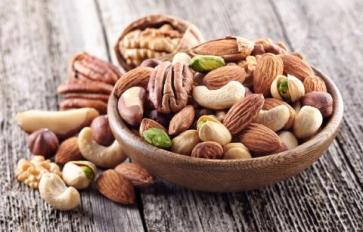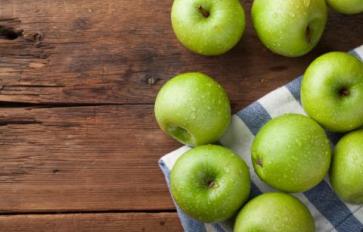
For so many of us, weight-loss diets rarely work. Stringent, restricted, and sometimes unhealthy, post-holiday crash diets often do more harm than good in the long-run.
Rather than beat yourself up to slim down, the end of January is the perfect time to try making subtle but powerful and lasting changes to your eating by adopting a more mindful approach to your eating. You will enjoy your food more, find increased energy, and see a more gradual but permanent and vibrant change in the way you look, feel, and approach your meals.
1. Journal Your Food
Many people groan at this one, so let’s get it out of the way. Journaling your food not only helps you see what you’ve eaten so you can pinpoint your weaknesses and areas of improvement -- it also helps you understand how you feel before and after you eat your meals. To make journaling work for you, get a notebook or paper, and log everything you can about your food: what you eat, how much, when, how your body feels after, and your state of mind before, during and after you eat. The more you jot down the more you’ll deepen your relationship with your food.
2. Honor Your Food as Medicine
Our bodies need food to operate at optimum, keep our metabolism revved up, and keep the immune system armory stocked. You don’t take a pill for pain when you need an antibiotic, so you probably shouldn’t eat a cupcake when what you really need is an apple. Knowing what to eat is simple. Choose whole foods over processed, the more colorful the better, and organic, non-GMO, and free-range when you can.
3. Listen to Your Body
Awareness is key. Note how you feel after you’ve eaten a delicious meal with fresh cucumbers and some hummus with cleansing cilantro, versus some Tzatziki with a side of carrots and tabouli? Do you feel tired after you eat, or more energized? Do you feel bloated or pleasantly satisfied? Peppy and happy, or just meh? Everyone’s body runs differently and what works for your mom or your best friend may not be the best food for you. Listen to what your body tells you, then fine-tune your diet to include the things that make you feel great!
4. Make the Meal a Priority
If you find yourself rushing off with an energy bar in your hand to gobble down when you’re in traffic, get up earlier and set the table. Make your meal as important as taking a shower, or choosing your outfit. Honor your systems by placing their care high on your priority list. Nourish and maintain them on the inside as much as you would on the outside.
5. Slow Down
If you stand at the counter, or text when you’re eating, you aren’t eating to eat. You’re just dosing yourself with nutrients and calories, and depending on how much you’re multi-tasking, you may not even realize how much you ate until you reach for more, only to find there’s no more left. The fastest way to put on pounds is to feed yourself while you’re multitasking.
4. Plan Your Meals
If you have a busy day and you know you need to eat on the run, at your desk, in the car or before a meeting, try to take at least 30 seconds to ground, center, get quiet and give thanks for your health, your abundance, and the chance to feed your body and soul really good food.
Food is meant to fuel us right away – like you do your car. If you put diesel into a tank that requires gasoline, the car’s not going to go. So if you’ve just downed a latte with sugar and milk alongside a microwaved bakery treat, you might feel more taxed than nourished. This doesn’t mean you can’t have your goodies, but take the time to listen to your body so you can plan accordingly to keep your energy humming when you need it most. Maybe save the latte and the cheese Danish for a lazy Saturday rather than right before a big presentation.
When you eat with mindfulness you may not lose 10 pounds in a week, but you begin to make more lasting, permanent and healthy changes, improving any pitfalls in your routine that may be resulting in extra pounds. So skip the pills and unreasonable restrictions and just pay attention. Your body, mind and waistline will thank you!








